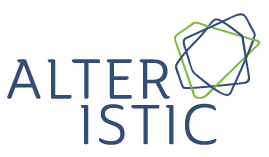The Art of Responsibility
You are holding a cup of coffee when someone comes along and bumps into you, making you spill your coffee everywhere. Why did you spill the coffee? You spilled the coffee because there was coffee in your cup. Had there been tea in the cup, you would have spilled tea. The point is whatever is inside the cup, is what will spill out. Therefore, when life comes along and shakes you (which will happen), whatever is inside you will come out. It’s easy to fake it, until you get rattled. So, we have to ask ourselves, “what’s in my cup?” When life gets tough, what spills out? … You choose!
Author Unknown
n prevention work, specifically with regard to the role of the bystander, we often speak of “responsibility” — what it looks like and the part each person plays in any given moment to negate or diffuse a possible negative outcome. Yet, what I’ve personally come to understand about responsibility is this:
It is, ultimately, a choice.
A choice we make individually depending on our socialization, culture, background, beliefs, families, relationships, etc. We are the sum of all of our parts, whether we are fully aware of it or not. We spend our lives making hundreds of choices every day based solely on who we say we are and who we want to be. In other words, our view of our personal responsibility (or lack of) is simply a case of what’s in our cup. Because the only thing that can flow out of our cups is who we already are.
In today’s society we’re constantly inundated with negative news stories leaving us to wonder how or if things will ever get better. It also only takes us hearing or seeing an act of grace or kindness from one person to another to remind us that no matter how dire circumstances may appear – or how distant hope may seem to be – we have not completely abandoned our human responsibility to one another.
The Art of Responsibility then, is essentially The Art of Humanity. Our conceptual idea of our world and how we show up within it are not just thoughts in our heads, but behaviors that we’re constantly playing out. Instead of simply telling us what to do, “responsibility” persistently asks questions of us. It asks “Who we are?” “What we value?” This responsibility compels us to consider if how we respond is in alignment with who we say we are. Every second of every day – but especially in moments of tension and conflict – it asks us, “How are you practicing your humanity?” The more we build the habit of continually asking that question of ourselves – and exercise the courage to be honest in our response – the more we will be able to show up as the best versions of who we say we are.





